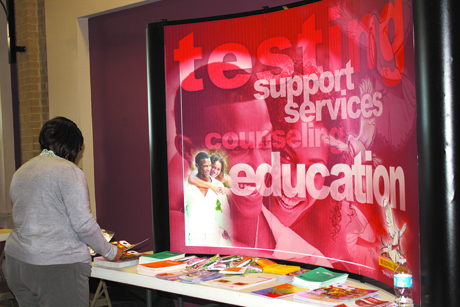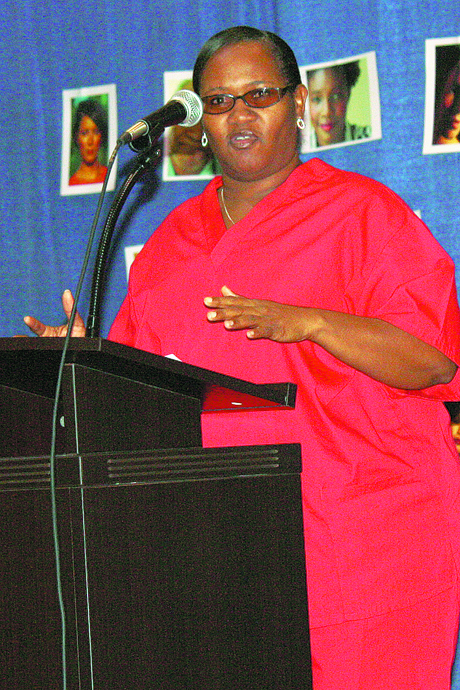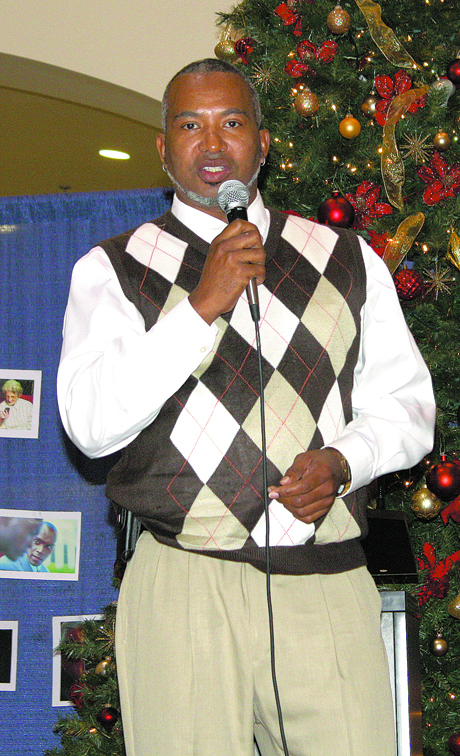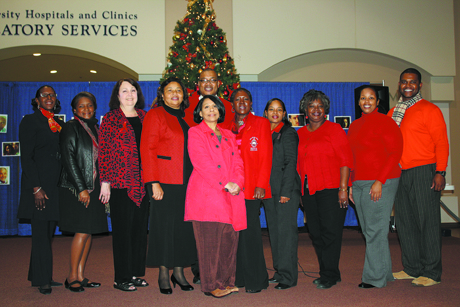There are more than 9,214 Mississippians living with the Human immunodeficiency virus (HIV) disease, according to the Mississippi State Department of Health (MSDH).
Nationally, there are 1.1 million Americans living with HIV. Data indicate that one out of every five people living with HIV do not know they have it.
MSDH, in collaboration with community partners, sounded the alarm for increased awareness and more education during its World AIDS Day observance, Dec. 1, at the Jackson Medical Mall Center Stage. Managing Editor of The Mississippi Link/WRBJ 97.7 Talk Show Host Othor Cain served as master of ceremony.
“Today is a celebration of how communities come together to fight,” said Dr. Nick Mosca, the new STD/HIV office director for MSDH. “This is about how we work collaboratively to address the needs of our neighbors, to promote education [about the disease], about how to get the resources needed.” Mosca emphasized that it is important to make sure those affected by HIV have adequate housing, and that they are made to feel a part of the community and can serve as leaders.
One of those affected and serves as a leader and advocate in the fight is Carolyn Butler, patient services coordinator for the University of Mississippi Medical Center. She shared her testimony during a segment called, “Facing AIDS – A Personal Story.”
While living out of state, Butler discovered she was HIV positive after taking a blood test for a life insurance application. She said she can never forget the day she received the phone call telling her to provide a doctor’s office to which to send the results. “Please know I was not one of those persons who ran the streets or had multiple sex partners,” she told the audience. “I had a partner at the time. He did not want to believe it when I finally told him about it,” she said.
Butler said at one point, she was taking 21 pills a day as part of her treatment. Many of which had to be refrigerated.
Today, Butler helps others go through their HIV/AIDS ordeal by sharing her story and offering encouragement. “I would tell anybody to get tested, first of all,” she told The Mississippi Link. “Get in contact with one of the local organizations that does HIV testing as well as talk with them for counseling, and form a bond with that person doing the counseling.”
Others sharing their personal stories included Cedric Sturdevant, who is a training facilitator with My Brother’s Keeper, Inc.
My Brother’s Keeper, Inc., (MBK) got its start in 1998 when 33 African Americans convinced the Congressional Black Caucus to persuade U.S. Congress to fund HIV/AIDS to reduce the burden on the African-American community and to help alleviate health disparity.
Sturdevant, who began his advocacy work after his diagnosis, shared that for a while he was so ill that his CD4 count was at 7. “It is by the grace of God that I’m still here,” he said. The body’s immune system contains different types of cells that help protect itself from infection. One of these types are called the CD4 or T-cells. HIV attacks these cells and uses them to make more copies of HIV. And in doing so, HIV weakens the immune system, making it unable to protect the body from illness and infection.
Sturdevant said it is important to have a good family support system. His mother prayed for him. Later as he got better, his CD4 count reached 640. “God didn’t save me to be quiet. I’m going to stay in the fight,” said the Mississippi Delta native, who also considers Texas home because he resided there 17 years.
Both he and Butler agree that people need to get over the stigma, myths and stereotypes associated with HIV/AIDS. “People today still fail to get educated,” said Butler. “I’ve educated friends and relatives and they still have that stigma in them.”
Mississippi Community Planning Group Facilitator Aurelia Jones Smith presented a memorial tribute, Facing AIDS in Remembrance. “We have had many casualties to say the very least,” Smith said. “We will always remember their voices, their smiles, their laughter, and especially their eyes, which seem to urge us even now to never give up the search for a cure; to never give up the care for those who are still going through; to never give up the work of educating the masses; to never give up the work of preventing the spread of this deadly disease; to never give up the fight for universal access, human rights and equity of resources.”
Smith called for a moment of silence.
Prevention and Education Director for MSDH Juanita Davis spearheaded the event.





Be the first to comment